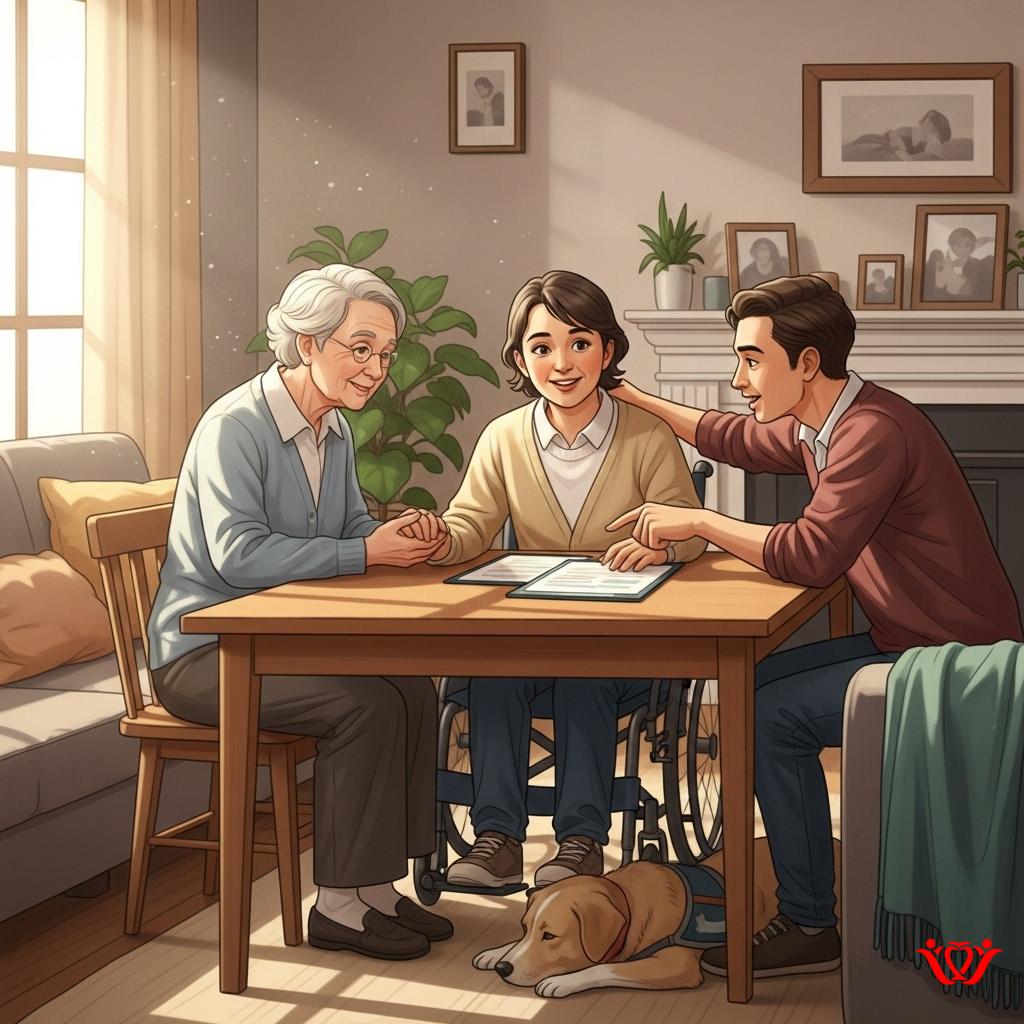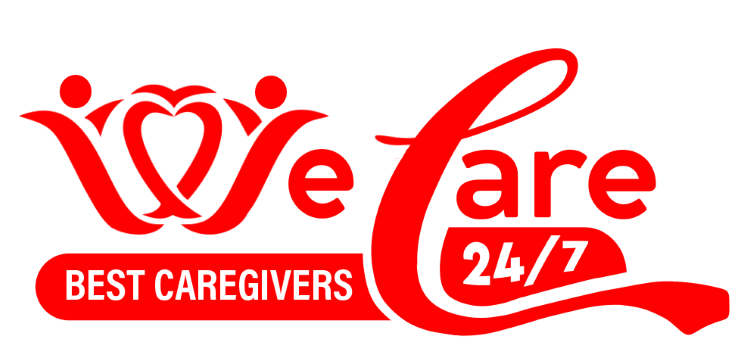Your Ultimate Guide to Disability Advocacy & Support Networks for NJ Families

Navigating Support Systems for Individuals with Disabilities in New Jersey
For families in New Jersey caring for individuals with disabilities, understanding the landscape of advocacy and support networks is essential. The journey can present unique challenges, from securing appropriate educational services to accessing comprehensive healthcare and community resources. However, with the right information and connections, families can navigate these complexities with greater confidence and ensure their loved ones receive the care and opportunities they deserve.
At WeCare Home Caregivers, we understand the dedication and commitment involved in providing exceptional care. Our aim with this guide is to empower New Jersey families by illuminating the various avenues of support available, helping you become a more effective advocate and a more connected member of the disability community.
Understanding Disability Advocacy: Empowering Voices
Disability advocacy refers to a range of actions aimed at ensuring that individuals with disabilities can exercise their rights, access opportunities, and participate fully in society. It involves speaking up for oneself or for others to promote inclusion, equality, and dignity. For many New Jersey families, advocacy becomes a powerful tool to bridge gaps between needs and available services.
Effective advocacy starts with knowledge. Understanding the legal frameworks, available programs, and the specific needs of your loved one forms the foundation. It’s about ensuring fair treatment, breaking down barriers, and championing policies that support a more inclusive New Jersey. This collective voice strengthens the community and drives positive change.
Key Advocacy Areas for New Jersey Families
Advocacy efforts in New Jersey often focus on several interconnected areas, each vital for improving the quality of life for individuals with disabilities.
Educational Advocacy: Securing Appropriate Learning Environments
In New Jersey, children with disabilities have a right to a Free Appropriate Public Education (FAPE) under the Individuals with Disabilities Education Act (IDEA). Educational advocacy involves working with school districts to develop Individualized Education Programs (IEPs) or 504 plans that meet a child’s unique needs.
- Individualized Education Programs (IEPs): These legally binding documents outline a child’s present levels of performance, annual goals, and the special education and related services they will receive. Advocacy here means ensuring the IEP is comprehensive and implemented effectively.
- Parental Rights: Parents have specific rights regarding their child’s education, including the right to participate in IEP meetings, request evaluations, and dispute decisions. Understanding these rights is fundamental to effective advocacy.
- Transition Services: For older students, advocacy extends to planning for post-secondary education, employment, and independent living, ensuring a smooth transition into adulthood.
Organizations like The Arc of New Jersey offer valuable resources and direct advocacy support for educational matters. Learning to effectively communicate with school personnel and document interactions can significantly impact outcomes for students.
Healthcare Access Advocacy: Navigating Complex Systems
Access to quality healthcare is paramount for individuals with disabilities. In New Jersey, this often involves navigating state programs like Medicaid, managed care organizations, and specialized services through the Division of Developmental Disabilities (DDD).
- Medicaid and NJ FamilyCare: Understanding eligibility requirements and covered services is key. Advocacy might involve appealing denials or ensuring access to necessary therapies and equipment.
- Division of Developmental Disabilities (DDD): For individuals with intellectual and developmental disabilities, DDD provides services that promote independence and community inclusion, including residential, day, and support coordination services. Advocacy helps families access and utilize these programs effectively.
- Managed Long-Term Services and Supports (MLTSS): Many New Jersey residents with disabilities receive care coordination through MLTSS programs within Medicaid. Advocating ensures care plans meet specific needs and that services are delivered appropriately.
Advocacy in healthcare also involves ensuring medical professionals are aware of specific needs and that communication across providers is seamless. This can involve obtaining second opinions or ensuring accurate medical records.
Employment and Vocational Advocacy: Pathways to Independence
Meaningful employment offers individuals with disabilities increased independence and self-worth. Advocacy in this area focuses on ensuring equal opportunities and necessary accommodations.
- Americans with Disabilities Act (ADA): This federal law prohibits discrimination against individuals with disabilities in employment, public accommodations, transportation, and state and local government services.
- New Jersey Division of Vocational Rehabilitation Services (DVRS): DVRS provides services that help individuals with disabilities prepare for, secure, retain, or regain employment. Advocacy here means connecting with DVRS and ensuring tailored support.
- Reasonable Accommodations: Advocating for reasonable accommodations in the workplace ensures that individuals can perform essential job functions despite their disabilities.
Connecting with employer networks and support services dedicated to inclusive hiring practices can significantly improve employment prospects for individuals with disabilities in New Jersey.
Housing and Community Integration Advocacy: Promoting Inclusion
Accessible and affordable housing is a significant concern. Advocacy efforts aim to expand options and ensure individuals with disabilities can live integrated lives within their communities.
- Accessible Housing: Advocating for housing that meets accessibility standards, whether through adaptations or new construction.
- Community Living: Promoting opportunities for individuals with disabilities to live independently or with support in community settings, rather than institutional environments.
- Transportation: Ensuring access to reliable and accessible public transportation options is a common advocacy point, connecting individuals to work, appointments, and social activities.
Many New Jersey non-profits work diligently to expand housing opportunities and create more inclusive community programs, offering support and guidance to families seeking appropriate living arrangements.
Navigating New Jersey’s Support Networks
Beyond individual advocacy, a robust network of government agencies and non-profit organizations provides vital support and resources for New Jersey families. Engaging with these networks can provide information, funding, and a sense of community.
New Jersey Government Agencies
Several state agencies play a direct role in supporting individuals with disabilities:
- NJ Department of Human Services (DHS): Oversees many programs and services for individuals with disabilities. Within DHS, key divisions include:
- Division of Disability Services (DDS): Acts as a central point for information and referrals for all New Jersey residents with disabilities, regardless of age or type of disability. They publish the Disability Services & Resource Directory, an invaluable resource.
- Division of Developmental Disabilities (DDD): Provides services and supports to eligible individuals with intellectual and developmental disabilities aged 21 and older, as well as those under 21 who qualify for specific services.
- Division of Medical Assistance and Health Services (DMAHS): Administers New Jersey’s Medicaid program (NJ FamilyCare), which provides healthcare coverage to eligible individuals.
- New Jersey Division of Vocational Rehabilitation Services (DVRS): Assists individuals with disabilities to secure and maintain employment.
Understanding the specific roles of these agencies and their eligibility criteria is a critical first step in accessing state-funded support. Their websites offer a wealth of application forms, program descriptions, and contact information.
Non-Profit Organizations and Advocacy Groups
New Jersey is home to numerous non-profit organizations dedicated to various aspects of disability advocacy and support. These groups often provide specialized services, peer support, and advocacy at the systemic level.
- The Arc of New Jersey: A leading advocate for people with intellectual and developmental disabilities and their families. They offer information, resources, and policy advocacy. Their website is a comprehensive hub.
- Statewide Parent Advocacy Network (SPAN) of NJ: Provides information, training, and support to families of children with disabilities and special healthcare needs. SPAN helps parents navigate special education and healthcare systems. Their services are free and confidential.
- Disability Rights New Jersey (DRNJ): The federally mandated protection and advocacy system for people with disabilities in New Jersey. DRNJ provides legal and advocacy services, working to protect and advance the rights of individuals with disabilities. Explore their offerings for legal guidance.
- United Cerebral Palsy of New Jersey (UCP of NJ): Offers programs and services for individuals with cerebral palsy and other disabilities, focusing on community living, employment, and support.
- Family Support Organizations (FSOs): These county-based organizations provide peer support, education, and advocacy for families of children with emotional and behavioral challenges.
Connecting with these organizations can provide a sense of community, shared experiences, and access to professional guidance that might otherwise be difficult to find.
Local Community Resources and Support Groups
Many local communities in New Jersey offer grassroots support. These can include parent support groups, recreational programs, and community centers that provide inclusive activities.
- Parent Support Groups: Often found through school districts, hospitals, or specific disability organizations, these groups offer a safe space for parents to share experiences, strategies, and emotional support.
- Community Centers: Many local YMCAs, community recreation departments, and libraries offer programs specifically designed for or inclusive of individuals with disabilities.
- Disability-Specific Organizations: Look for local chapters of national organizations or smaller, independent groups focusing on specific conditions like autism, Down syndrome, or spina bifida.
These local connections can be particularly enriching, providing immediate resources and friendships within your geographical area.
WeCare Home Caregivers: Your Partner in Care and Advocacy
At WeCare Home Caregivers, we understand that effective advocacy and access to support networks are deeply intertwined with the daily needs of individuals with disabilities. While we provide direct, compassionate in-home care, our role extends to being a supportive resource for New Jersey families.
Our professional caregivers assist with personal care, medication management, mobility support, and companionship, helping individuals maintain independence and comfort at home. This allows families more time and energy to dedicate to advocacy efforts and navigating complex systems.
We believe in a holistic approach to care. Our team can provide essential respite for primary caregivers, preventing burnout and ensuring the family unit remains strong. We can also assist with transportation to appointments, ensuring consistent access to therapy sessions, medical consultations, and community programs that are vital for advocacy and support.
Moreover, our caregivers are often a consistent presence in the home, observing and reporting changes that may inform advocacy strategies. We work collaboratively with families to support their goals, understanding that our care services are a complementary part of a broader support system for individuals with disabilities in New Jersey.
Empowering Families: Practical Steps for Effective Advocacy
Becoming an effective advocate for a loved one with disabilities involves developing certain skills and adopting practical strategies.
- Know Your Rights: Familiarize yourself with federal and state laws that protect individuals with disabilities, such as IDEA and the ADA. Understanding these legal frameworks empowers you in discussions with schools, healthcare providers, and employers.
- Document Everything: Maintain meticulous records of all communications, meetings, evaluations, and services received. This includes dates, attendees, decisions made, and follow-up actions. Detailed documentation is invaluable for appeals or disagreements.
- Seek Professional Guidance: Don’t hesitate to consult with special education advocates, disability attorneys, or social workers who specialize in disability services. Their expertise can be invaluable in navigating complex legal and bureaucratic systems.
- Connect with Peers: Join parent support groups or online forums. Sharing experiences with other families facing similar challenges can provide emotional support, practical advice, and a network for information exchange.
- Stay Informed: The landscape of disability services and laws can change. Subscribe to newsletters from advocacy organizations, attend workshops, and regularly check official state websites for updates.
Remember that advocacy is a marathon, not a sprint. Celebrate small victories and remain persistent. Your dedication can significantly enhance your loved one’s quality of life.
Addressing Challenges and Finding Solutions
Despite robust networks, families may still encounter challenges such as bureaucratic hurdles, funding limitations, or a lack of specialized services in certain areas of New Jersey. Persistence and creativity are often needed to overcome these obstacles.
When facing denials for services, understand the appeal process. Many government agencies and insurance providers have formal grievance procedures that families can utilize. Seeking support from a non-profit organization like Disability Rights New Jersey can be beneficial during these times.
If specialized services are scarce in your local community, explore virtual options or consider advocating for the expansion of services through local government or community leaders. Collective advocacy through parent groups can often bring about significant change.
Your Path Forward: Support and Strength in New Jersey
Navigating the world of disability advocacy and support networks in New Jersey is a significant undertaking, but you do not have to do it alone. The state offers a wealth of resources, from governmental assistance to dedicated non-profit organizations and compassionate care providers like WeCare Home Caregivers.
By actively engaging with these networks, staying informed, and advocating effectively, New Jersey families can build a robust support system that empowers individuals with disabilities to lead fulfilling and independent lives. We encourage you to reach out to the resources mentioned and discover the strength in community and collective action. Together, we can ensure every individual receives the care and opportunities they deserve.



